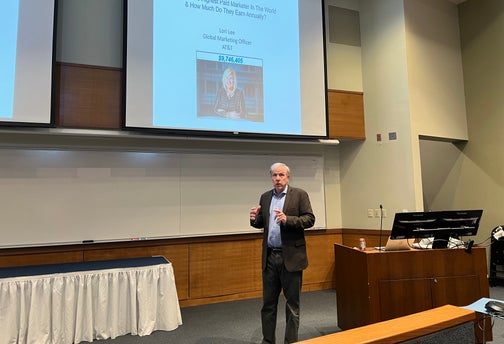Big data presents a big opportunity.
From marketing to accounting to biology, data analysis allows individuals to draw meaningful insights and devise solutions from complex and often disparate sources.
Emmanuel's minor in Data Analytics is designed to bring you into the already-arriving future where data-driven research and insights run nearly every facet of business and society. Across industries, data science practices are being integrated to power the next generation of workers, researchers, and leaders, with workplace roles changing fast and becoming more fluid—it's not just a role of the data analyst to provide insights anymore. Anyone from marketers to sales professionals in industries from retail and consumer goods to financial services and nonprofits are becoming more data savvy. Graduates with experience in data analytics will be sought after in any field where digital information is collected and analyzed to generate insights.


